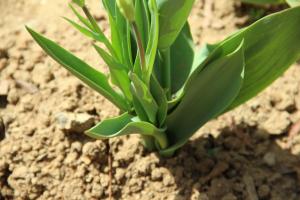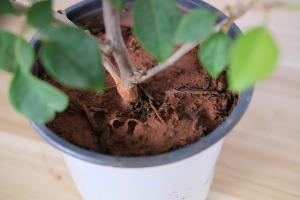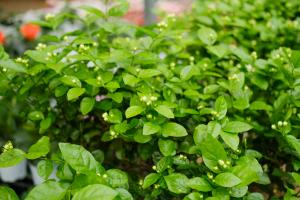What's the Best Fertilizer for North Texas Planting Tomato Plants?
Tomatoes are a great addition to any garden, especially in North Texas where the weather is ideal for growing these delicious fruits. But to have a successful tomato harvest, it's important to use the right type of fertilizer. With so many options available, it can be difficult to determine the best fertilizer for your North Texas tomato plants. Here, we'll explore different types of fertilizers and their benefits to help you make the best decision for your garden.
Organic Fertilizers
Organic fertilizers come from natural sources such as compost, animal waste, and bone meal. They are an excellent choice for gardeners who want to avoid chemicals and synthetic ingredients. Organic fertilizers improve soil quality and provide long-term benefits to plants. In North Texas, worm castings and chicken manure are popular organic fertilizers that promote healthy growth and fruit development in tomato plants.
Inorganic Fertilizers
Inorganic fertilizers, or synthetic fertilizers, are man-made products that contain nitrogen, phosphorus, and potassium, essential nutrients that plants need to grow. Inorganic fertilizers have the advantage of providing instant nutrients to plants, making them an ideal choice for gardeners who want quick results. However, they can also have negative effects on the environment and soil quality if not used properly. When using inorganic fertilizers in North Texas, it's important to choose products that are designed for the local soil and climate to avoid overuse and potential harm.
Slow-Release Fertilizers
Slow-release fertilizers are another option for tomato plants. These fertilizers release nutrients over an extended period of time, providing a steady supply of nutrients to plants. This type of fertilizer is convenient for gardeners who want to reduce the need for frequent applications. Slow-release fertilizers are available in both organic and inorganic options, giving gardeners the flexibility to choose the best type for their needs.
Using Fertilizers Correctly
Choosing the right fertilizer is only the first step. To ensure that your North Texas tomato plants receive the maximum benefits from fertilizers, it's essential to follow proper application methods. Start by testing the soil to determine the existing nutrient levels. This will help you determine the type and amount of fertilizer that your plants need. When applying fertilizers, follow the directions on the package carefully to avoid overuse, which can damage plants and soil quality. Apply fertilizers evenly around the base of the plants, avoiding direct contact with the leaves or stems.
Conclusion
Choosing the best fertilizer for your North Texas tomato plants depends on your gardening goals and preferences. Organic fertilizers are an excellent choice for those who want to avoid chemical exposure and promote long-term soil health. Inorganic fertilizers are popular for their quick action, but they should be used judiciously to avoid potential harm. Slow-release fertilizers are convenient and available in both organic and inorganic options. Whatever type of fertilizer you choose, make sure to use it properly to promote healthy growth and a bountiful tomato harvest.

 how many times do yo...
how many times do yo... how many planted tre...
how many planted tre... how many pine trees ...
how many pine trees ... how many pecan trees...
how many pecan trees... how many plants comp...
how many plants comp... how many plants can ...
how many plants can ... how many plants and ...
how many plants and ... how many pepper plan...
how many pepper plan...
































